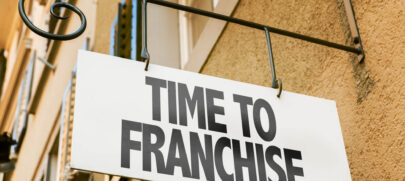The Wall Street Journal recently predicted that minimum wage campaigns would heat up during the holiday season, and that franchisees in particular would be affected.
The president would like to see the national minimum wage increased, but states and cities are making legal changes on their own, and protesters are targeting individual companies as well. Why does this affect franchises in particular, and should it affect your decision about which franchise to choose?
It’s not that franchises as a whole have lower wages than other kinds of companies, or even that other kinds of businesses are not being affected. It’s the confusion between the small business and the corporate owner.
In Arkansas, one state that passed a new minimum wage law in the most recent elections, businesses that earn less than $500,000 per year and employ three people or fewer are exempt from minimum wage laws. A company with four employees must pay the state minimum wage, currently $6.25, and companies earning $500,000 in revenue each year must pay the national minimum wage, currently $7.25.
Similar rulings obtain in several other states. In Georgia, where the minimum wage is $5.15 an hour, companies with fewer than six employees are exempt. In Illinois, family members are exempt, but any company with more than four employees excluding family members must pay the minimum wage of $8.25. Minnesota has two minimum wage rates, one for companies with revenues of $500,000 or more and one for those with smaller revenues. Montana sets the cut-off point at $110,000 per year, and the state minimum wage is just $4.00 an hour.
Many franchisees would count as small companies and be exempt from minimum wage requirements of any kind in these states. However, protests and the new city minimum wage laws arising from these protests in some areas will not exempt franchises. The franchisee may be bringing in $350,000 a year with three workers, but the corporate franchisor is a multibillion dollar enterprise, so the franchisee — even though he or she is an individual owner of a small sandwich shop — is not exempt.
There are a lot of uncertainties here:
- Will there be protests in your town, and if so, will your business be targeted or will your workers join the protest?
- If there are protests, will they affect your business?
- Will your town or state make changes in the minimum wage?
- Does your town or state have exemptions for small businesses?
- If so, will they define your business as a big or small business?
It’s hard to know the answers to all these questions, but you should consider them when you’re calculating and comparing franchise opportunities. Check labor costs for the franchises you’re considering, and calculate how they might change if the minimum wage rules in your region changed. If you would pay minimum wage to some workers and more to others, consider whether you would have to increase wages for all workers if you increased those for minimum wage workers. Find out whether you would be able to raise prices to offset added costs.
Bear in mind, too, that you will pay fees to your franchisor on the basis of revenues and not profits.



